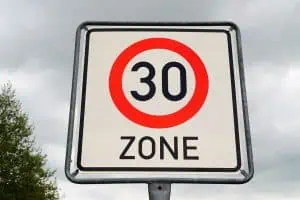It is a done deal, the board in Amsterdam has decided to reduce the maximum period for holiday rentals from 2019 to 30 days instead of 60 days as currently permitted. Amstelveen had already preceded Amsterdam in this respect, and has announced to tighten the rule to a maximum of 30 days this year. Apart from the fact that the political support for this rule change had grown considerably lately, some Amsterdam parties even argued for a complete ban on holiday rentals, alderman Laurens Ivens (Living) also felt strengthened by a recent ruling of the District Court of Amsterdam. Time to review this ruling.
Originally, the Amsterdam Municipal Executive wanted to limit the rental period to a maximum of 30 days per year by the end of 2016, but then saw too many legal objections to make the measure possible. However, a ruling on 5 December 2017 by the District Court of Amsterdam would have given the Municipal Executive sufficient confidence to implement the measure after all.
The case
A family rents out their home to tourists during the periods they stay abroad via the well-known AirBnB website. The members of the family are registered in the basic registration system of Amsterdam. In addition, during a check in the house, in addition to several tourists, various personal belongings of the family are found. There is therefore no doubt that the family actually has its main residence in the house in question and that the house is not systematically used only for holiday rentals.
However, what goes wrong in this case is that, at the time the inspection takes place, the house appears to have been rented out to more than four tourists. This despite the fact that holiday rentals is only allowed up to four persons, the strict maximum allowed according to the Amsterdam housing ordinance. This therefore gives rise to the imposition of a hefty fine of €13,500.00 for withdrawing the house from its residential use without a permit. But is this actually a case of eviction now that the family mainly stayed in the house themselves?
Withdrawal in the event of occasional letting as well
According to Article 21 of the Housing Act, it is in principle forbidden to use housing for anything other than housing. Giving a dwelling a purpose other than living in it is also referred to as housing withdrawal. A common example of housing withdrawal nowadays is holiday rentals. A defense that is often put forward is that the withdrawal has only taken place incidentally and should therefore not be included under the heading of withdrawal. The family in question also indicated that they only occasionally rented out the house to tourists.
The Amsterdam District Court does not accept this argument and considers the following:
“Case law of the Administrative Jurisdiction Division of the Council of State shows that it follows from the rental of a dwelling to and the use of a dwelling by tourists that it is not available for habitation and has therefore been withdrawn from its purpose of habitation, even in the case of incidental rentals”.
In short, the Amsterdam District Court follows two decisions of the Council of State[1] from which it can be deduced that:
- Letting to tourists in itself results in housing withdrawal, now that the house is not available for sustainable habitation at that time;
- The fact that this happens only incidentally, or even once only, does not change the above.
It may be clear that the Council of State uses a very strict interpretation of Article 21 of the Housing Act.
Housing withdrawal in case of occasional rental of main residence as well?
However, when we look at the underlying facts from the two judgments of the Council of State, one clear difference with the family case in question stands out. In the cases before the Council of State, there was in fact a landlord who did not actually have his main residence in the house. This is relevant as those parties had undoubtedly given the dwelling a purpose other than residence for a certain period of time. The Council of State considered this in its decision of 6 September 2017:
“All these observations indicate that the tenant did not live in the dwelling and that it was not available for habitation and was therefore withdrawn from the purpose of habitation”.
The Council of State seems to take into account that the (re)tenant in question did not live in the dwelling himself for at least some time, but only used the dwelling for holiday rentals during this period. It could be concluded from this that as long as the person who rents out the house to tourists continues to keep his main residence in the house, there is no question of housing withdrawal. In this view, an actual house does not essentially get a different destination by (occasionally) renting it out as a holiday home.
However, the Amsterdam court ruled differently. The aforementioned rulings lead the court to conclude that at the moment of (short-term) vacation rentals of a house there is always a change of function of the use and therefore a withdrawal of the house. The fact that the landlord keeps his main residence in the house does not change this:
“The court deduces from these judgments that – also in the case of permanent residence – during the periods that the house is let, there is talk of withdrawal of residence from the destination for habitation. After all, renting out the house to tourists constitutes a change in the function of the use. The dwelling could not be used for habitation during the rental period to tourists”.
The interpretation of the Court can be followed now that the Council of State in its judgments does not seem to offer room for a form of holiday rental of dwellings that does not fall within the scope of housing withdrawal. The fact that a dwelling is hardly ever used as a residence is an aggravating circumstance rather than the fact that the dwelling is mainly still lived in permanently is an attenuating circumstance.
30-day rule or prohibition?
Back to the intention of the Amsterdam Municipal Executive to reduce the number of permitted days of holiday rentals to 30. Now that the Amsterdam District Court is mainly basing its judgment on existing judgments of the Council of State, the value of the judgment as a novelty seems small. The only extra step that the Amsterdam court seems to make in this respect is the conclusion that even if the house is normally permanently occupied, there is still a case of withdrawal at the moment the house is made available for (short-term) holiday rentals.
Apparently there was still uncertainty in the Amsterdam municipality as to whether holiday rentals always fall under Article 21 of the Housing Act, the article that prohibits withdrawal in principle. With this last statement, it definitely has become even clearer. The other question that arises is therefore whether this has not opened the door to a total ban on holiday home rentals? After all, if holiday rentals of a dwelling can by definition be regarded as house withdrawals, the ban on house withdrawals in the Housing Act seems to offer an opportunity to do so.
Some are of the opinion that a complete ban on holiday rentals would violate property rights too much. AirBnB itself is of the opinion that the limitation of 60 to 30 days is already too much infringement of property rights. However, the government is in principle allowed to take measures that restrict an owner’s right of ownership. However, the government will have to demonstrate that it has a sufficient interest in doing so, whereby the interests of the owner must also be taken into account. In addition, the measure must be proportionate. Nevertheless, it is conceivable that if the problems surrounding holiday rentals increase, the municipality of Amsterdam will then have a more plausible interest in restricting these holiday rentals.
In view of the consensus in the Amsterdam municipal council (almost all parties are at least in favour of a restriction to 30 days) on the problems surrounding holiday rentals, there seems to be a realistic basis for the assumption that the holiday rentals in Amsterdam are problematic. It therefore seems not unlikely that the 30-day rule will stand up in court. In our opinion, a complete ban seems to be a step too far for the time being.
Ginio Beij
Do you have further questions about the 30-day rule, holiday rentals via AirBnB, for example, or have you been fined? Please feel free to contact us.
Lawyer Ginio Beij (beij@m2advocaten.nl)
1] ABRvS 14 October 2015, ECLI:NL:RVS:2015:3154 and ABRvS 6 September 2017, ECLI:NL:RVS:2017:2407

